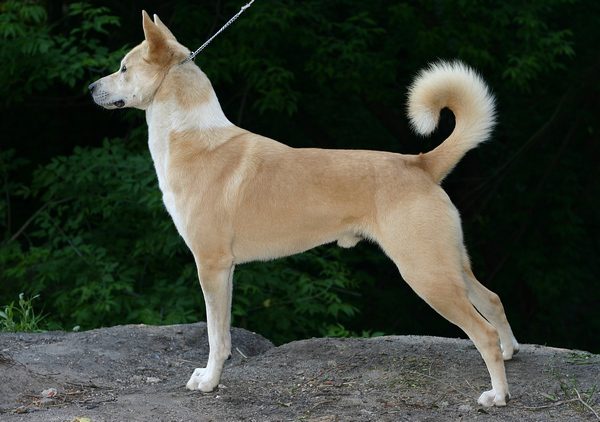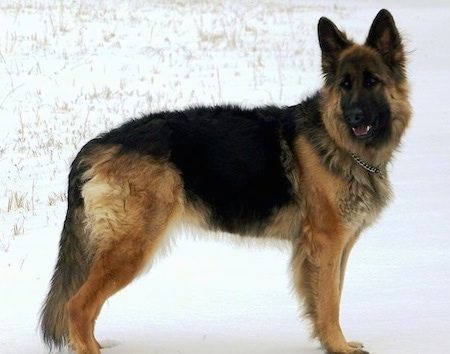Key Takeaways:
- The Anatolian Shepherd is a large and powerful breed known for its protective nature.
- They are independent and intelligent, requiring consistent training and socialization from an early age.
- Anatolian Shepherds have a strong instinct to guard their family and property, making them excellent watchdogs.
- Regular exercise is essential for this breed to prevent boredom and destructive behavior.
- Proper grooming, including regular brushing and nail trimming, is necessary to keep their coat healthy and free of mats.
Are you ready to embark on a journey into the fascinating world of Anatolian Shepherds? These incredible dogs possess a wealth of unique characteristics and require special care that sets them apart from other breeds. By understanding the ins and outs of this breed, you'll not only gain valuable knowledge but also develop a deep appreciation for these majestic creatures. Whether you're a dog enthusiast or considering adding an Anatolian Shepherd to your family, this topic will provide you with the tools to ensure their happiness and well-being. So, let's dive in and uncover the secrets behind the Anatolian Shepherd: Dog Breed Characteristics & Care!
What is an Anatolian Shepherd and what are its main characteristics?
Anatolian Shepherd: A Mighty Guardian
The Anatolian Shepherd is a breed of dog that originated in Turkey. It is known for its impressive size and strength, making it an ideal guardian for livestock. With a sturdy build and a muscular body, the Anatolian Shepherd can weigh up to 150 pounds and stand as tall as 30 inches at the shoulder.
This breed has several distinguishing features that set it apart. One of its most notable characteristics is its thick double coat, which helps protect it from harsh weather conditions. The coat can be either short or medium in length and comes in various colors such as fawn, brindle, or white. Additionally, the Anatolian Shepherd has a broad head with drop ears and alert almond-shaped eyes.
Main Characteristics:
- Impressive size and strength
- Sturdy build and muscular body
- Thick double coat for protection
- Variety of coat colors
- Broad head with drop ears
- Alert almond-shaped eyes
How the Anatolian Shepherd's size and strength make it suitable for guarding livestock?
A Guardian Tailor-Made for Livestock Protection
The Anatolian Shepherd's large size and formidable strength make it an excellent choice for guarding livestock. Its imposing presence alone can deter potential predators, while its physical abilities allow it to confront threats if necessary.
The sheer size of the Anatolian Shepherd can intimidate predators such as wolves or coyotes, discouraging them from approaching the flock. Its strong muscles enable it to chase away intruders and protect the livestock from harm. The breed's natural instinct to guard, combined with its loyalty and protective nature, make it an exceptional guardian for sheep, goats, or any other farm animals.
Key Traits:
- Intimidating presence
- Strong muscles for chasing away intruders
- Natural instinct to guard
- Loyal and protective nature
Discover the key traits of an Anatolian Shepherd that make it a loyal and protective companion
Anatolian Shepherd: Your Loyal Protector
If you're looking for a loyal and protective companion, the Anatolian Shepherd might be the perfect match. This breed is known for its unwavering loyalty towards its family members and its strong protective instincts.
The Anatolian Shepherd forms deep bonds with its owners and will go to great lengths to keep them safe. It is always watchful and alert, ready to defend its loved ones from any potential threats. Its protective nature extends not only to humans but also to other animals in its household.
Key Traits:
- Unwavering loyalty
- Strong protective instincts
- Watchful and alert at all times
- Defends loved ones from threats
- Protective of other animals in the household
Why does the thick double coat of an Anatolian Shepherd help it adapt to different weather conditions?
Anatolian Shepherd: Weather-Resistant Coat
The Anatolian Shepherd's thick double coat serves as a natural adaptation to various weather conditions. Whether it's scorching heat or freezing cold, this breed's coat provides insulation and protection.
During hot summers, the outer layer of the coat helps reflect sunlight, preventing excessive heat absorption. The undercoat acts as an insulator, keeping the dog cool by trapping air close to its body. In colder climates, the dense double coat provides excellent insulation against low temperatures, allowing the Anatolian Shepherd to stay warm and comfortable.
Benefits of the Thick Double Coat:
- Reflects sunlight during hot weather
- Undercoat acts as insulation
- Provides protection against cold temperatures
- Maintains comfort in various weather conditions
The exercise and mental stimulation needs of an Anatolian Shepherd for a happy and healthy life
A Balanced Lifestyle for Your Anatolian Shepherd
Anatolian Shepherds are active dogs that require regular exercise and mental stimulation to lead a happy and healthy life. Engaging them in physical activities not only keeps them physically fit but also helps prevent behavioral issues that may arise due to boredom or pent-up energy.
A daily routine that includes long walks, jogging, or playing fetch will help satisfy their exercise needs. Mental stimulation is equally important for this intelligent breed. Puzzle toys, obedience training sessions, or interactive games can provide mental challenges and keep their minds sharp.
Exercise and Mental Stimulation Needs:
- Daily walks, jogging, or play sessions
- Puzzle toys for mental stimulation
- Obedience training sessions for mental challenges
- Interactive games to keep their minds sharp
Proper grooming and hygiene tips for an Anatolian Shepherd with its unique coat type
Grooming Your Anatolian Shepherd: A Guide to Coat Care
The Anatolian Shepherd's unique coat requires regular grooming to keep it healthy and free from matting. Despite its thickness, the coat is relatively low maintenance, but proper care is still essential.
Brushing the coat at least once a week helps remove loose hair and prevents tangling or matting. During shedding seasons, more frequent brushing may be necessary. Bathing should be done as needed, using a dog-specific shampoo to maintain the coat's natural oils. Additionally, regular nail trims, teeth brushing, and ear cleaning are important parts of overall hygiene.
Grooming Tips:
- Brush the coat at least once a week
- Use a dog-specific shampoo for bathing
- Trim nails regularly
- Brush teeth and clean ears as part of hygiene routine
Common health issues in Anatolian Shepherds and how to prevent or manage them
Promoting Health in Anatolian Shepherds: Prevention and Management
Anatolian Shepherds are generally healthy dogs, but like any breed, they can be prone to certain health issues. Being aware of these conditions and taking preventive measures can help ensure their well-being.
Hip dysplasia and elbow dysplasia are common concerns in large breeds like the Anatolian Shepherd. Regular exercise on appropriate surfaces and maintaining a healthy weight can reduce the risk of these joint problems. Bloat, a potentially life-threatening condition, can also affect this breed. Feeding multiple smaller meals throughout the day instead of one large meal and avoiding vigorous exercise immediately after eating can help prevent bloat.
Common Health Issues:
- Hip dysplasia and elbow dysplasia
- Bloat
Prevention and Management:
- Regular exercise on appropriate surfaces
- Maintaining a healthy weight
- Feeding multiple smaller meals throughout the day to prevent bloat
- Avoiding vigorous exercise after meals to reduce the risk of bloat
In conclusion, the Anatolian Shepherd is a large and powerful dog breed known for its loyalty, intelligence, and protective nature. They require proper training, socialization, and regular exercise to thrive as family pets.
Are Anatolian shepherds good house dogs?
Anatolian Shepherd Dogs are a robust breed, however, they should be kept indoors with their families to prevent the risk of escape when kept outside. Due to their large size and exercise requirements, they are not suitable for apartment living. Anatolian Shepherds have a high shedding rate and will leave fur throughout the house.
Are Anatolian shepherds high maintenance?
Taking care of an Anatolian Shepherd does not require a lot of physical activity, as long as they have access to a securely fenced-in yard. However, Anatolian Shepherds are naturally suspicious of strangers, and their independent personality can make training them difficult.
Do Anatolian shepherds bark a lot?
This breed is known by multiple names such as Anatolian Karabash dog, Turkish Shepherd dog, and Kangal dog. While they are generally easygoing, calm, and good with children, one distinctive characteristic of this breed is their tendency to bark frequently.
Do Anatolian shepherds like to cuddle?
Similarly, once you become acquainted with them and have properly trained and raised them, the Anatolian Shepherd dog breed is known for being calm, composed, and surprisingly affectionate. They may even attempt to cuddle with you (despite their large size!) and would happily use a dog bed ramp to join you on the sofa.
What are the disadvantages of the Anatolian Shepherd?
Because of their large size, independent nature, and the need for specific care, the Anatolian Shepherd may not be ideal for inexperienced owners. They require a strong and knowledgeable leader who can handle their unique characteristics. Additionally, this breed is not well-suited for apartment living.
Do Anatolian shepherds do well in hot weather?
The Anatolian Shepherd is a lively and industrious breed that was originally bred to protect and guard sheep. It is able to withstand both extreme heat and cold temperatures.
















